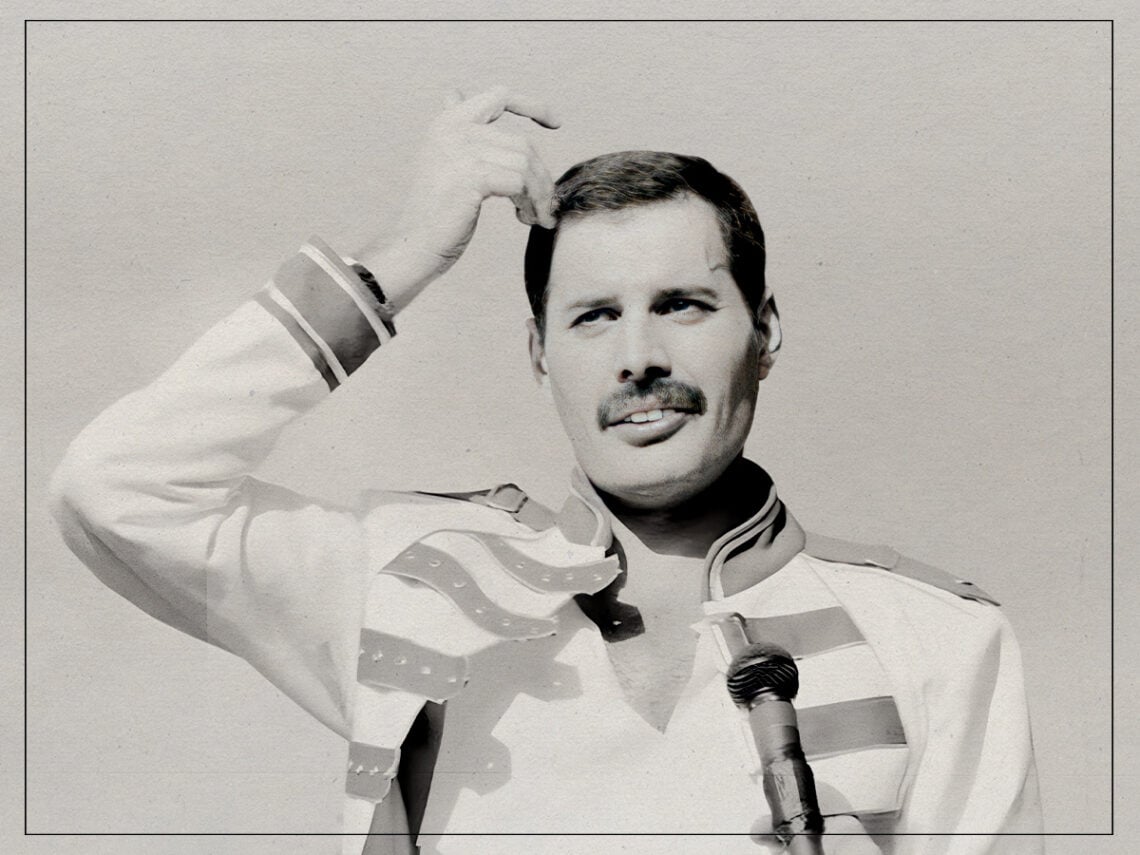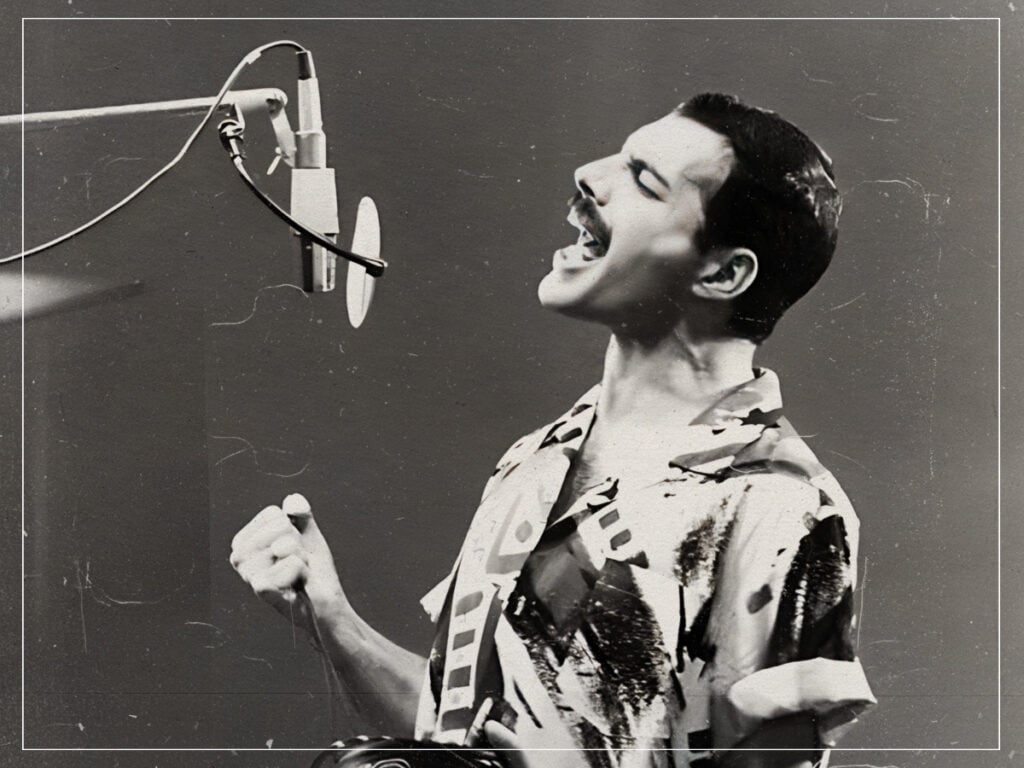
(Credits: Far Out / Carol Lee / Alamy)
Thu 6 November 2025 8:47, UK
Trying to capture the hearts and minds of an audience is the enduring challenge set for lead singers. But there is one man who managed to do both within a few steps onto the stage. Because of that, and so much more, the reputation that Freddie Mercury has attained as rock’s greatest frontman is well earned.
When most think of Mercury today, whether it’s through the band’s mammoth catalogue of songs or by way of eye-rolling biopics like Bohemian Rhapsody, it’s as a singular force of nature who could command entire stadiums with the flick of his wrist. But Mercury wouldn’t have been able to get there had his musicianship not been incredibly impressive as well.
Mercury’s voice was second to none: whether it’s layering up harmonies on ‘Bohemian Rhapsody’, spitting venom on ‘Death on Two Legs’, blasting out lightning-quick lines on ‘Stone Cold Crazy’, or creating all-time classic melodies on ‘Don’t Stop Me Now’, Mercury was as versatile a singer as rock music had ever seen.
Capable of soft ballads and oversized operas in equal measure, Mercury’s range and interest in different genres proved to be essential to Queen’s long-lasting appeal. Without the singer, there is a very good chance that not only would you not remember Queen, but they would have barely been a blip big enough to pique anybody’s interest.
His vocal range had a chance to blast out any competition, and his performance at Live Aid is the kind of control that only a few singers can ever attain. But Mercury was also proficient as an instrumentalist as well.
 Freddie Mercury in the booth. (Credits: Far Out / LastFM)
Freddie Mercury in the booth. (Credits: Far Out / LastFM)
He was dismissive of his skills at guitar, which he famously claimed he “couldn’t play for nuts” despite performing ‘Crazy Little Thing Called Love’ on the six-string. But that was OK, because Mercury’s real instrument was the piano.
He was a consummate pianist and was able to delicate tinkle as well as he could power through chords. it felt like an extension of his impressive singing voice. Often fleshing out the band’s sound with stately grand piano lines, Mercury adapted his classical training to a more rock and roll sound, but often returned to the ornate stylings of more traditional piano playing.
Maybe because of his formal training, or perhaps just because of his personality, Mercury could be a bit of a snob when it came to keyboards. Although he gamely adapted to synthesisers in the 1980s, Mercury was reticent to use anything other than a grand piano in his recordings and live performances. So when John Deacon came in with a new song that he insisted be played on a Wurlitzer electric piano, Mercury was aghast.
“I refused to play the damn thing,” Mercury told BBC 1 in 1977. “It’s tinny and horrible and I don’t like them. Why play those things when you’ve got a lovely superb grand piano?” Deacon explained that the sound of the Wurlitzer was essential to the song, so Mercury suggested that Deacon play the instrument himself.
“Well, Freddie didn’t like the electric piano, so I took it home and I started to learn on the electric piano and basically that’s the song that came out you know when I was learning to play piano,” Deacon explained in the same interview. “It was written on that instrument and it sounds best on that. You know, often on the instrument that you wrote the song on.”
During the rare times that Queen played ‘You’re My Best Friend’ live, Mercury took charge of the keyboard line and played it in on his preferred grand piano. By the 1980s, Mercury began to phase out his piano playing during live shows, oftentimes spending most songs singing away from the instrument in order to interact with the crowd. ‘You’re My Best Friend’ was dropped after the 1980 tour in support of The Game and did not make a return to the band’s setlists until after Mercury’s death.
Related Topics
The Far Out Classic Rock Newsletter
All the latest Classic Rock content from the independent voice of culture.
Straight to your inbox.

